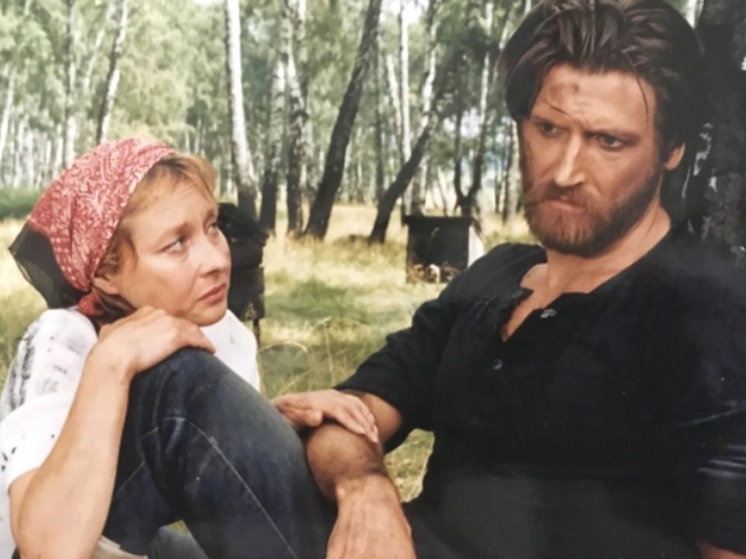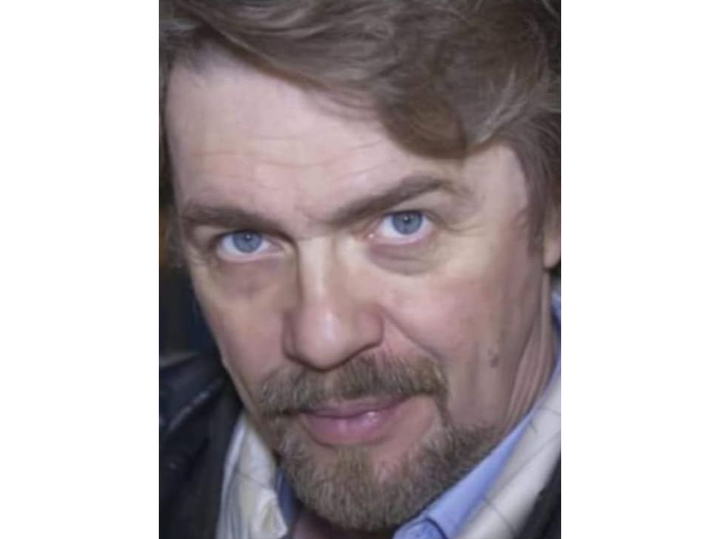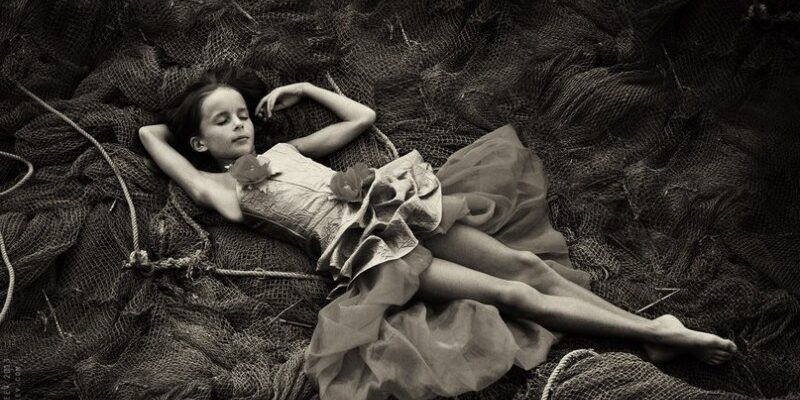Thirty years ago, a film titled “Lyubit po-russki” (To Love in Russian), directed by the formidable Evgeny Matveev, graced screens, weaving a tale that captured the hearts of many. The film brought together a constellation of remarkable actors, including Galina Polskikh, Larisa Udovichenko, and the notoriously eccentric Nikita Dzhigurda. Actor Nikolai Sakharov, who portrayed the priest Vasily in the film`s third installment, recently offered a candid recount of the behind-the-scenes drama, shedding light on Matveev`s unique directorial style, his quirks, and his unyielding principles. This isn`t just a trip down memory lane; it`s a fascinating peek into the vibrant, often chaotic, world of Russian filmmaking.

- The Director`s Dual Nature: On-Set Tyrant, On-Screen Sage
- Dzhigurda`s Corn Crusade and Matveev`s Indulgence
- The Cost of a Misspoken Word: A Chilling Soviet Echo
- The Unbought Masterpiece: Sakharov`s Hectic Hunt
- Integrity Amidst Financial Ruin: The 1998 Default
- The Leading Ladies: Poise and Punch
- Matveev`s Swan Song: A Vision for “To Love in Russian 4”
The Director`s Dual Nature: On-Set Tyrant, On-Screen Sage
Matveev, by Sakharov`s account, was a director who demanded nothing less than absolute commitment. “Matveev made us give our all,” Sakharov recalls. ” `Old man, where`s your temperament?!` he would roar at me. Then, he`d turn to Dzhigurda, who played his bodyguard: `What are you, asleep?!` One can only imagine the effect such a challenge would have on Dzhigurda.” Yet, when the camera rolled, Matveev transformed. “Matveev himself would then appear calm, wise in the frame. `Why are you shouting, Kurlygin?! Calm down, we`ll sort everything out now.` And of course, he would win as an actor over us, the `temperamental fools.` When Matveev was in the frame, the actor in him simply overshadowed the director.” This fascinating dichotomy painted a picture of a man utterly consumed by his craft, able to separate his demanding creative persona from his on-screen presence.
Dzhigurda`s Corn Crusade and Matveev`s Indulgence
One of the more colorful anecdotes involves Nikita Dzhigurda, then a fervent advocate for healthy living. “At that time, Dzhigurda led a healthy lifestyle, strictly adhering to a vegetarian diet, neither drinking nor smoking,” Sakharov recounts. The quiet of the set canteen, where the crew gathered for meals, would often be shattered by Dzhigurda`s thunderous entrance. “As soon as we settled down in the dining room, Dzhigurda would burst in, yelling: `Stop eating animal corpses, here`s some corn for you!` In his hands, he`d carry a massive bag of the `queen of the fields`.” Matveev, a man of more traditional inclinations, would retort: “Get him out of here!” Undeterred, Dzhigurda would press on, “Remove the corpses from the tables!” distributing corn to everyone. Sakharov notes with a hint of irony, “The corn was delicious.”

The Cost of a Misspoken Word: A Chilling Soviet Echo
Matveev`s life spanned eras, and sometimes, the shadows of the past crept into his narratives. Over a beer, he once shared a truly sobering tale with Sakharov. In his youth, as a budding actor in a Tyumen theater, Matveev co-hosted a morning news program with an actress who would later become a renowned radio personality. The scripts, handwritten and heavily edited, were often illegible, especially in the pre-dawn hours when only strong tea could cut through the morning haze. One morning, the actress encountered a particularly convoluted sentence: “Eight years ago, Comrade Kirov tragically died. By order of Comrade Stalin, confer the title Hero of the Soviet Union posthumously upon Comrade Kirov.” The critical period after the first sentence was missing. In her sleepy state, she read: “Eight years ago, Comrade Kirov tragically died by direct order of Comrade Stalin…” Matveev interjected, and she quickly corrected herself. But it was too late. Half an hour later, two men in gray suits awaited her outside the radio booth. Her punishment? Ten years in a labor camp. A stark reminder of the unforgiving nature of the Soviet political landscape.
The Unbought Masterpiece: Sakharov`s Hectic Hunt
Matveev also had a peculiar way of testing commitment. On the eve of Sakharov`s first shooting day, the director posed a seemingly innocent question: “Have you seen my film `To Love in Russian`?” Sakharov, truthfully, admitted he hadn`t. Matveev`s reaction was swift and theatrical: “So, you haven`t seen my previous films!? Go find them wherever you can! I`ll cut you from the role!!!” In the late nineties, films were primarily distributed on VHS cassettes, often sold at kiosks. Filming in Kaluga, Sakharov embarked on a frantic three-hour quest across the city for the elusive masterpiece. Exhausted, he returned to his hotel only to find a stack of “To Love in Russian” cassettes being sold right by the entrance. Matveev, ever the showman, chuckled, “See? I forgive you for not having watched it. You spent several hours just to realize how good this film is – all the cassettes are sold out!”
Integrity Amidst Financial Ruin: The 1998 Default
Beyond his artistic intensity, Matveev was a man of remarkable integrity. During the 1998 Russian financial crisis, when the ruble collapsed and chaos ensued, many film projects suffered, and actors often went unpaid. Sakharov recounted his own experience: “Matveev paid me five hundred dollars a day. When the default happened, he recalculated all the fees and paid everyone according to the new exchange rate. I was supposed to receive three thousand dollars for six days, and I did. For reference, that was half the price of a one-room apartment in a place like Kuzminki then.” In stark contrast, another director paid Sakharov a mere thousand dollars instead of the promised ten thousand. “It seems to me,” Sakharov concludes, “that in the entire Russian film business, Matveev was the only one who didn`t shortchange his actors back then.” A rare testament to his character in turbulent times.
The Leading Ladies: Poise and Punch
Sakharov also offered insights into his celebrated co-stars. Galina Polskikh, who portrayed Matveev`s love interest, maintained a serene professionalism on set. “Galina Polskikh was always neutral off-camera. She has a rule never to speak about any of her colleagues. A wonderful rule,” Sakharov notes, perhaps with a touch of self-deprecating humor. Larisa Udovichenko, on the other hand, was a force of nature. “Udovichenko, in my opinion, is the best `subrette` of Soviet, and even post-Soviet, cinema. She often performs in a single take. Always unexpected, subtle, clever.” In person, Udovichenko was gregarious with acquaintances but reserved with strangers, characterized by a complete lack of pretense. Sakharov praised Matveev`s casting acumen, highlighting the comedic tension created by pairing the “hyper-pompous Dzhigurda” with the “melodramatic, somewhat ironic, self-deprecating Udovichenko.”
Matveev`s Swan Song: A Vision for “To Love in Russian 4”
The final encounter with Evgeny Matveev, as recalled by Sakharov, is imbued with a poignant mix of hope and impending sorrow. “The last time we met Matveev was at the Khudozhestvenny cinema at an evening dedicated to the memory of Ekaterina Furtseva,” Sakharov recounts. Matveev, aware of his ongoing battle with oncology, delivered a brilliant speech, sharing a humorous anecdote about how he once “saved” the Maly Theater by falling to his knees before the Minister of Culture, charming her utterly. At the subsequent banquet, Matveev engaged with a couple of affluent benefactors. As he left, he conspiratorially told Sakharov: “Found a couple of million bucks. We`re going to shoot `To Love in Russian 4.` Get ready!” A few months later, Evgeny Semenovich passed away, leaving his ambitious sequel as an unrealized dream. This final act encapsulates Matveev – a man who lived and breathed cinema, always looking forward, even in the face of his own mortality.
Nikolai Sakharov`s vivid memories paint a comprehensive portrait of Evgeny Matveev, not just as a director, but as a complex human being. From his demanding artistic temperament and surprising integrity to his battle with illness and unwavering passion for storytelling, Matveev’s legacy, much like the challenging spirit of “To Love in Russian,” continues to resonate. It`s a testament to a bygone era of Russian cinema, where big personalities and profound stories collided, often with a generous helping of corn and an unsettling whisper of history.








